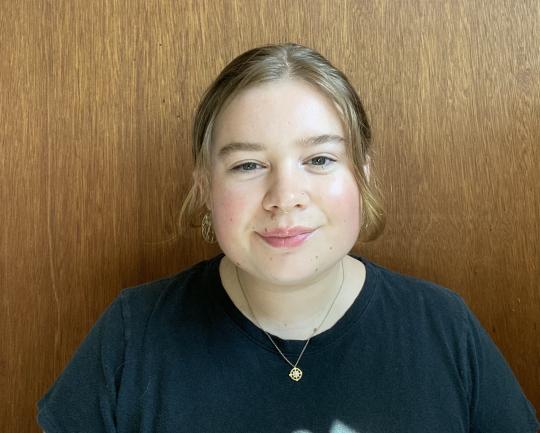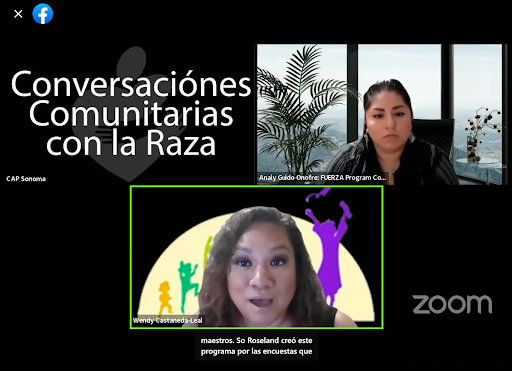How Community and Accessibility Benefit Latinx Students and Families
“There were no opportunities for students like me, that look like me,” Dr. Wendy Castañeda-Leal explained during a public Zoom meeting with Community Action Partnership Sonoma County. The discussion, Conversaciónes Comunitarias de la Raza, was between Dr. Castañeda-Leal, Director of Whole Child Education for Roseland School District, and CAP Program Coordinator Analy Guido Onofre, about the realities, barriers, and solutions for Latinx and Hispanic students and parents trying to navigate the American education system. Dr. Castañeda-Leal’s own experiences as a Latina student in a Spanish-speaking household motivated her work within school districts and towards the communities she serves and is a part of herself.
A major theme of the discussion was accessibility in education, specifically for parents and students that primarily or solely speak Spanish. For students whose parents or themselves are immigrants, the education system in the United States is unlike that of their countries of origin. With the added barrier of documents, programs, and materials being overwhelmingly in English, circumstances like the COVID-19 pandemic and virtual learning have posed significant challenges. Roseland School District also has little to no homeschooling opportunities for families impacted by the pandemic or other issues, let alone homeschooling materials in Spanish. Despite the formidable situations, she had advice for the impacted communities.
Dr. Castañeda-Leal advocates for community support as a way to assist parents and students alike, and to better the education opportunities for these students. For her, community support begins at providing families with services and resources like food and medical care, and continues into the school buildings with bilingual teachers and administrators, as well as having frameworks in place that work with students at their levels of comprehension in both Spanish and English. She acknowledges that “kids are sponges” who learn from their environment, so if they are within a Spanish-speaking community and household, Spanish is “their normal” and accommodation by the system is most beneficial. In addition to schools respecting their students’ learning abilities, families also need to be receptive to children with learning and behavioral disabilities. “The families need to know they are a united group,” she said, and that initiating support within the home and in school will “serve [the] child for the rest of their life.” Addressing racism, stigma, and inaccessibility not only better the individuals involved, but the community as a whole.
The inclusivity that Dr. Castañeda-Leal advocated for does a service for individuals and communities alike, and I would recommend both the talk and further exploration of the topics for anyone considering a path in education. Conversaciones Comunitarias con la Raza inspired me to consider how actions such as learning another language and using your bilingual abilities can benefit and strengthen your community.
Readers can find the recording of the talk here: https://fb.me/e/3A5F1qTab

Author: Meryl Wenger



